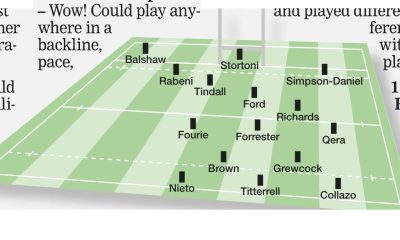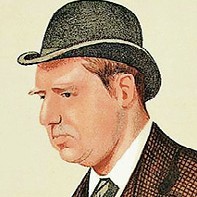POSSIBLY the most notable Old Blue is George Rowland Hill, an influential rugby administrator in the game’s formative years and the first individual to receive a knighthood for his services to the game.
Hill gave 49 years’ service to the RFU including 23 years as secretary between 1881 and 1904, which were among the most formative and turbulent in the game’s history.
Hill, below, attended Christ’s Hospital between 1865 and 1870 and was that rare thing among early administrators, somebody who was not from Rugby School nor indeed Oxbridge.
There were two massive developments on his watch as secretary at the RFU who, at the start of his tenure, considered themselves the governing body of the game.
A simple dispute over the scoring of a try against Scotland in 1884 called that into question and the Celtic three – Wales, Scotland and Ireland – promptly formed the International Board which for a while England refused to join.
The row rumbled on and England were banned from the 1888 and 1889 championships but eventually joined in 1890 on the understanding they had six votes to the two each of the other nations.
An early example of rugby’s aver- sion to democracy!
And then came the biggest schism of all – the payment for broken time – which many clubs in the north had been participating in much to the chagrin of Hill and those in the south who considered Union a strictly amateur game.
Hill would not budge and eventually came the momentous day in 1895 when 22 northern clubs broke away and formed their own Union where payments were permitted. The consequences of that were to rumble on for 100 years or more.
Hill liked to keep his hand in at grassroots level and refereed extensively, including a game in 1889 between England and the New Zealand natives while he also helped found Berkshire Wanderers who later became Reading. Additionally he served as president of the Old Blues, the Christ’s Hospital old boys team.































You must be logged in to post a comment Login